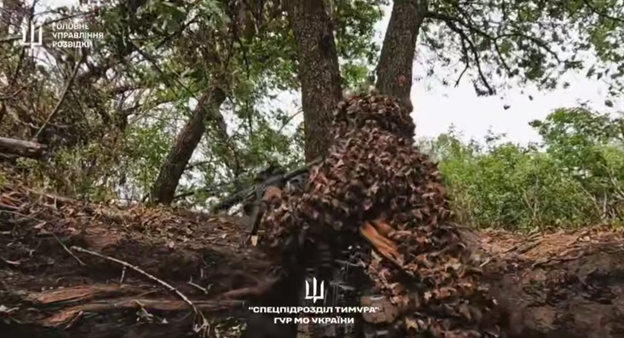'Food shortage is coming' — experts warn Russia's war on inflation risks Soviet-style economy collapse

A woman shops at a supermarket in Moscow, Russia, on Jan. 30, 2023. (Natalia Kolesnikova / AFP via Getty Images)
Amid high inflation, Russia is preparing to cap prices on staple food items, a move analysts say signals a shift toward a command economy that could trigger shortages, long queues, and public discontent.
According to a report by Russian pro-government media outlet Kommersant, the Agriculture Ministry and Industry and Trade Ministry are drafting amendments that would regulate the prices of vegetables, dairy, and poultry.
The draft law, currently under discussion with food producers, is expected to come into force on Mar. 1, 2026, according to the publication.
While the move is seen as a necessary step to curb inflation, economists warn that the consequences may mirror the failures of Soviet-era central planning.
"Russia is now shifting toward a fully planned, command-style system, with all its usual flaws — constant food shortages, long queues, and everything else that comes with it," said Igor Lipsits, a Russian-born economist.
"That's what lies ahead for Russians, and it's becoming quite clear."
State steps in as prices soar
Under the proposed measures, 80–90% of food production would be sold through long-term contracts at fixed prices, or within government-mandated price ranges.
According to Kommersant, some producers who are dissatisfied with the potential implementation of the measure are already looking for ways to bypass the controls.
The draft law comes as food prices continue rising, with inflation now one of the most pressing and politically sensitive issues in the country.
"I already see a shortage coming, even in the short term."
"According to eyewitness accounts, the price hikes are very significant," said Maria Snegovaya, Senior Fellow at the Center for Strategic and International Studies (CSIS).
"Let's not forget that rising food prices were one of the key factors behind the 1917 revolution in Russia."
The Russian Central Bank announced on July 25 that it had cut its key interest rate from 20% to 18%, the second reduction this year after a cycle of aggressive hikes meant to slow inflation.
The rate had peaked at 21% in late 2024 — the highest in modern Russian history.
According to a June poll by the independent Russian pollster Levada Center, 58% of Russians identified rising prices as their top concern. By contrast, only 33% cited the war in Ukraine or related issues.
"This issue is highly sensitive for (Russian President Vladimir) Putin's regime," Snegovaya said. "It undermines their ability to keep pretending that 'everything is fine and nothing is happening.'"


Return to price planning
Lipsits warned that the price control policy marks a decisive turn away from market mechanisms toward bureaucratic oversight.
"After 30 years of market economy, the Russian government is starting to return to price planning — the kind we saw in the Soviet Union," he said.
Food production, more than most sectors, is highly unpredictable. It depends on seasonal changes, weather patterns, and volatile input costs such as diesel, fertilizer, and animal feed. This makes it especially vulnerable to price regulation.
"It's about state-fixed prices that producers must comply with," Lipsits said.
"If they can't meet these prices, they'll incur losses. If they incur losses, they'll ask for subsidies — which the government won't provide."
Regime stability at risk?
Russia's potential return to price controls could recreate some of the most notorious problems of the Soviet-era economy, Oleksandr Talavera, professor of financial economics at the University of Birmingham, said.
"I already see a shortage coming, even in the short term," Talavera told the Kyiv Independent. "The moment the state says it will regulate prices, that product disappears.
"There's still a fundamental imbalance between the needs of Russia's population and the capacity of its agriculture to meet them."
"Just recall the Soviet Union — demand exceeded supply, and everything was controlled by the state."

For systems like Russia's, signs of dysfunction in essential services, including food distribution, pose serious risks.
"When goods are disappearing and salaries are not being paid — that's the real problem," said political scientist Ekaterina Schulmann in an earlier interview with the Kyiv Independent.
Alexander Kolyandr, a senior scholar at the Center for European Policy Analysis, believes the government's potential decision to pursue price caps reflects anxiety over falling wages and stagnant growth.
"It is possible these measures are aimed at curbing possible social discontent amid a sudden slowdown in growth and wages," Kolyandr said.
While the regulation may offer only temporary relief, the expert noted it could still provide the Kremlin with "an immediate political pay-off."
No easy fix
Russia's current dilemma reflects a broader economic malaise. High inflation, shrinking investment, and a volatile ruble have already eroded consumer confidence.
Experts believe that central planning will only make things worse.
"Instead of using monetary policy tools, they're now reaching the point of dictating to the economy what it must do," Talavera said. "They're trying hard to fight inflation."
Whether the Kremlin's price regulation gamble will calm the public or backfire remains to be seen. But for now, economists say the writing is on the wall.
"There's still a fundamental imbalance between the needs of Russia's population and the capacity of its agriculture to meet them," Lipsits said. "Price regulation doesn't fix this — it only pushes the crisis deeper into the system.
"If the government doesn't provide subsidies, producers will go bankrupt, production will collapse, and the food crisis will escalate."
Note from the author:
Hi, this is Tim — thanks for reading. At the Kyiv Independent, we speak to top experts to bring you accurate, in-depth reporting. We don't have a wealthy owner or political backing. We rely on readers like you to support our journalism. If you found this article valuable, consider joining our community today.











